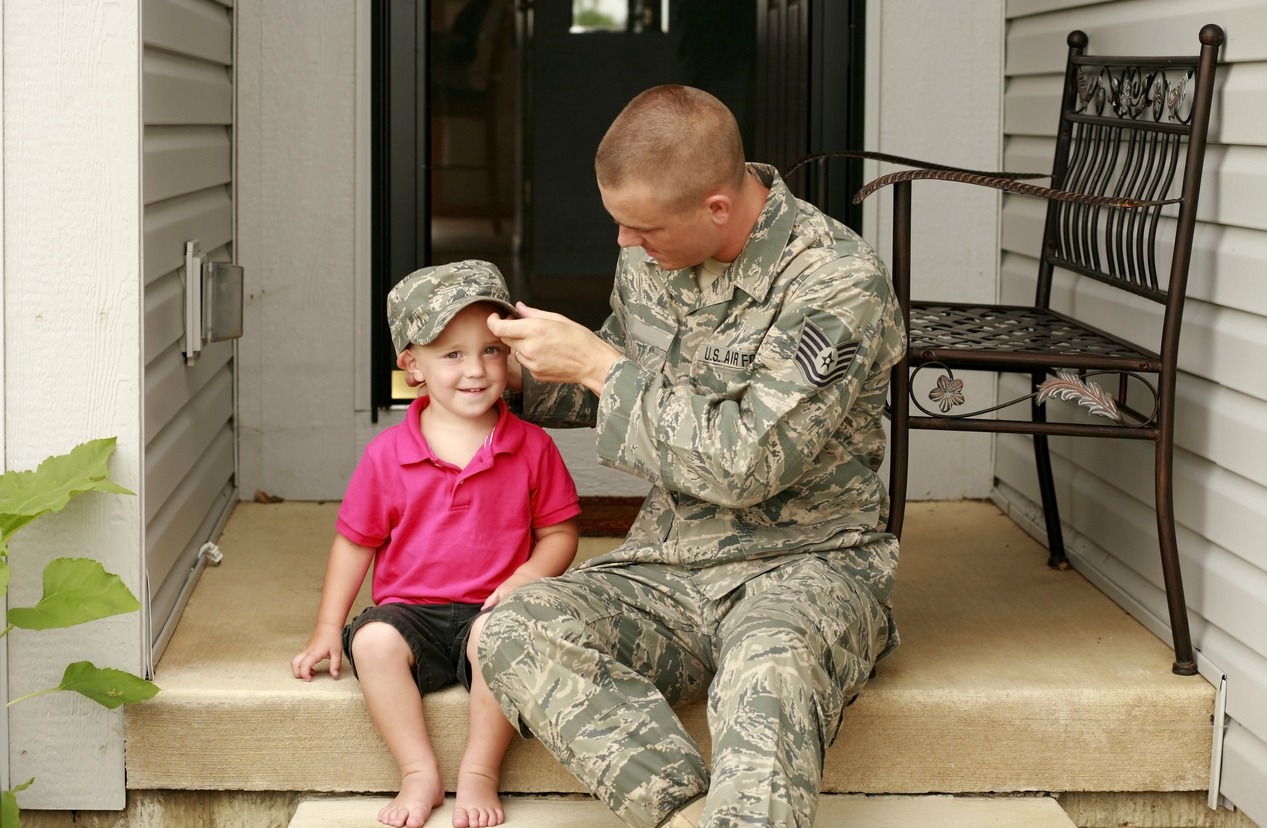With the large military presence here in Hawaii, many service members and veterans are looking to invest in the vibrant real estate market in our beautiful state. And why not? Buying a home in Hawaii can prove a great investment and it can also give you something to look forward to when you retire. The beaches, the golf courses, the near-perfect weather? Who wouldn’t want a little slice of this paradise, right?
Whether you’re stationed here for a short time or a long time, or even you’ve already retired from service, the VA, or Department of Veterans Affairs, home loan benefit is one of the great perks of military service. Officially called the VA Loan Guaranty Program, it is afforded to veterans and active duty service members, National Guard members, and reservists. If you are eligible for a VA home loan, the federal government essentially guarantees your mortgage, ensuring that the bank will get paid, even if at some point throughout the duration of your repayment period, you should happen to default on the loan for some unforeseen reason.
Advantages
Obtaining a VA home loan offers a couple of significant advantages over a conventional mortgage. The VA home loan program allows eligible members to purchase a home often with no down payment. Though banks and lenders do need you to meet certain income, asset and debt ratio criteria, the VA itself doesn’t need to see a down payment from the buyer in order to guarantee a home loan. Since the loans are backed by the federal government, often banks and lenders can offer very competitive interest rates. VA home loan interest rates are generally lower than those for a conventional mortgage, so you’ll be saving money on interest payments for years — and perhaps even decades to come.
Disadvantages
Zero down and lower interest rates are amazing positives, but there are some limits to the VA home loan program. Apart from the eligibility requirements set forth by the Department of Veterans Affairs, which detail the length of service required to obtain a Certificate of Eligibility (COE), there are additional considerations that come into play when using the VA home loan benefit. Once you’ve obtained a COE, but before you go shopping for your Hawaii dream home, it’s important to know that only certain types of homes will qualify for a VA home loan.
In general, single-family homes will qualify, but they have to conform to county records. For example, if the county records state that the single-family home you wish to purchase has 3 bedrooms, but in reality, there’s been a fourth bedroom added at some point that isn’t included in the county record (which isn’t uncommon in Hawaii), then you’re going to run across some roadblocks in obtaining financing through the VA home loan program. With an enormous short-term rental market in Hawaii, and due to some cultural factors, as well as the high cost of living here, many homeowners add “ohana units” or additional bedrooms, with the additional income often helping out with their mortgage payments.

If the home inspection reveals differences such as these between the actual home and what’s in the county records for the property, then there are some remediation steps that can be taken. If the differences are minor, there’s the possibility that both the buyer and the home inspector can sign off on them. Occasionally, the use of a “hold harmless” letter drafted by the home buyer can help to get the loan approved. A hold harmless letter from the buyer states that they will not hold the seller liable or responsible later on. A qualified realtor can help navigate you through this process, should you find any discrepancies between your dream home and the county’s records.
While single-family homes are generally an easier bet, getting your heart set on a condo can get a bit tricky. Condos, modular homes and sometimes manufactured homes do sometimes qualify for the VA home loan program, but not all of them will. Happily, the VA has compiled a searchable list of qualified condos for your convenience. We definitely recommend that you consult this list before falling in love with a property because obtaining VA approval for a property/complex that’s not on this list — while possible — can be complicated and time-consuming. Again, it’s best to seek a professional realtor’s guidance for any home purchase, but especially if you’re looking to finance a home through the VA that’s not on the VA’s approved condo list.
GSE Loan Limit
The other factor to consider when searching for your Hawaii home with a view to financing through the VA loan program is the cost of the home. Your loan has to be a what’s known as a conforming loan. Conforming, in the context of lending, means that your loan meets the criteria set forth by Fannie Mae and Freddie Mac, which are government-sponsored enterprises (or GSEs). These criteria differ slightly from those set forth by the Federal Housing Administration (the FHA). The term is most often used when referring to the loan amount, and in this case, the Department of Veterans Affairs uses the one-unit limit, as set forth, below. These limits aren’t necessarily the maximum amounts that an eligible and qualified veteran can borrow, but simply the upper limit of what the VA will guarantee.
For most counties across the country, the VA loan limit is currently set at $424,100 (in 2017). But for those living in parts of the country where the cost of living is quite high, as it is here in Hawaii, then the conforming loan amount is less than or equal to the maximum set forth by each county, tracking the GSE one-unit limits, below. When borrowing below this amount, your lender will generally offer you the very best rates available, which is definitely a consideration when choosing a home and making an offer.
| County | GSE one-unit limit |
| Hawaii | $636,150 |
| Honolulu | $721,050 |
| Kalawao | $657,800 |
| Kauai | $713,000 |
| Maui | $657,800 |
This doesn’t mean that you can’t borrow over and above the county’s loan limits, as set out above, but simply that you may need to have a down payment if you want to borrow over and above these conforming loan limits. Most veterans with a full VA loan entitlement and whose loan amount is less than or equal to the county loan limits (see above) will be eligible for 0% down. It depends on the vet’s previous benefit utilization. If the loan amount desired is greater than the county loan limit – the vet will be required to pay 25% of the difference between the county loan limit and the loan amount desired. It is best to consult a seasoned VA loan officer when looking for a VA loan.
It’s important to note that if you wish to borrow more than the conforming loan amounts, as laid out above, then you’ll also need to prove to your lender that you have sufficient family income to comfortably make your mortgage payments, with enough left over every month for debt service and living expenses, etc.
So, to summarize, there are three major considerations when shopping for a Hawaii home, with a view to taking advantage of your VA home loan benefit:
- Will the type of home qualify and does it conform to county records?
- If you’re looking to buy a condo, is it on the VA approved list of qualified properties and complexes?
- Is the price point you’re looking at within the county limits, and if not, do you have sufficient family income and a down payment in order to borrow over and above those limits?
We wish you success in your search for the perfect home for you and your family and we thank you for your service! Please let us know if we can help you in your quest for the perfect Hawaii residence for you and yours.
Additional Resources
Five Good Reasons to Get a Pre-Approved Mortgage
VA Lending in Hawaii
Purchasing a Condo with a VA Loan on Oahu
Moving to Hawaii with the Military? Live on Base Housing, Rent, or Buy?

Leave your opinion here. Please be nice. Your Email address will be kept private, this form is secure and we never spam you.